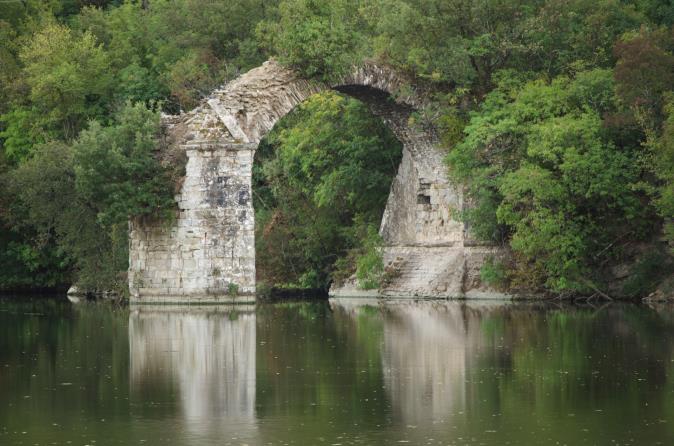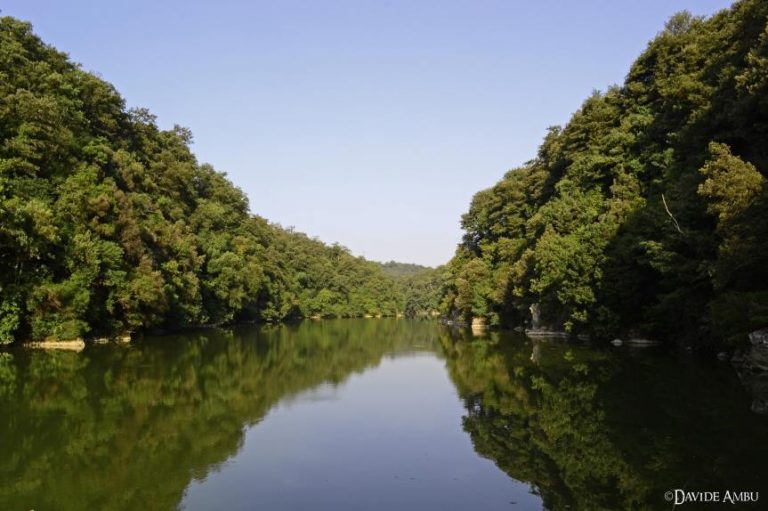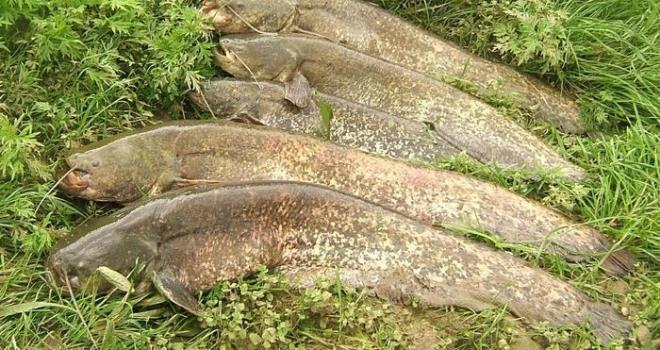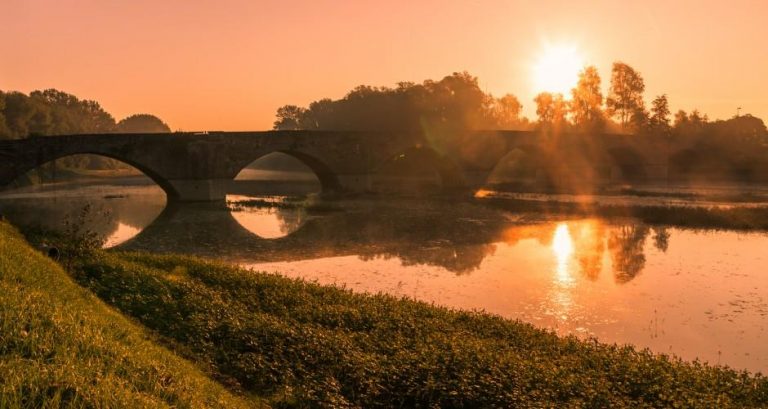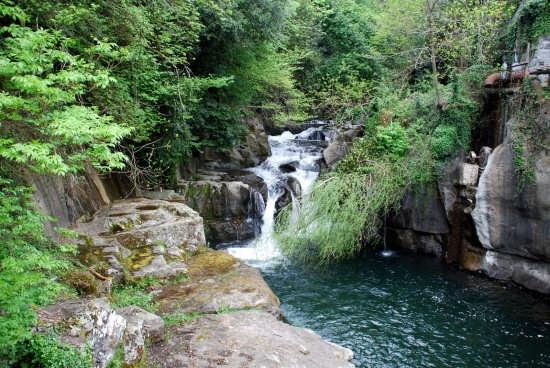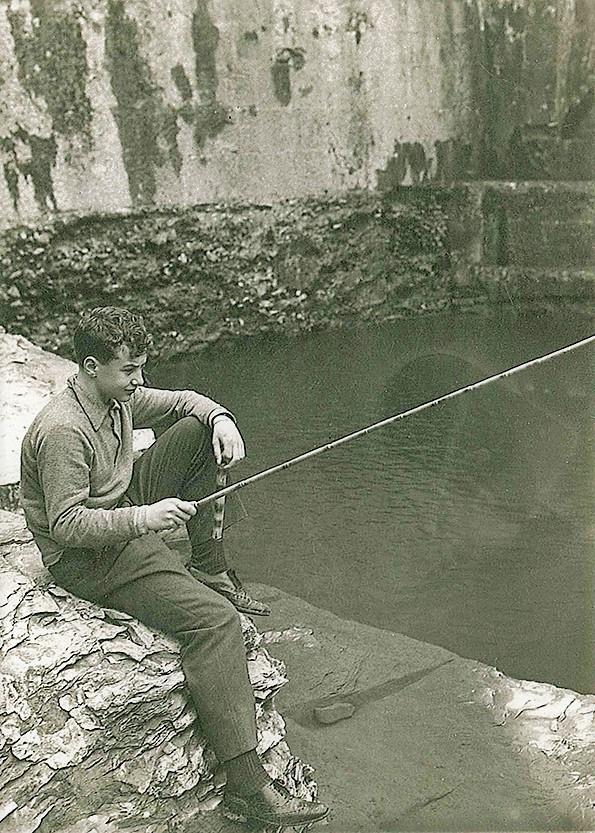Fishing trails
On request, it is possible to receive a detailed guide of the most charming places where you can devote time to this activity, both in lakes sport scattered in the territory, and in the rivers and in the streams, immersed in nature.
For A fee you can rent equipment, and be accompanied in the place you have chosen, subject to availability.
The area of Tuscany is rich in lakes and rivers, that in this short guide we are going to show you in order to enhance your holiday with the exciting experience of fishing. The various places mentioned are distinguished according to the insidious species and techniques, some of which are really unusual.
The Arno river
This river is well known for its course and the history of the territories and cities which passes through it, is not far from the Holiday Home. This river offers plenty of spots for different types of fishing: from the classic float with the worm, to spinning, to boiles, to the pieces of offal and cuttlefish macerated.
The fauna present in the Arno is in fact very rich: indeed, only 1 km from the holiday home lies a field of international competition where every year the FIPSAS organizes events that attract fishermen from all over Italy and not only.
The ex-International Competition
This field extends, also, very close to a bridge ancient Bridge Romito, a stone bridge, of which today there remain only ruins, but that was built by Hannibal to descend to the city of Rome with his army and his elephants. The stretch of the river has a depth fairly constant from 4 to 7m, depending on the opening of the dam, and has a bottom of rock and mud, in which the bed there are some fallen trees, shelters, welcome to fish predators.
This habitat is so diverse it hosts different types of fish: there’s the catches of carp, carp, queen, carp, mirror, barbel, chub, bleak, perch sun and perch, while it is strongly impaired in the presence of the eel, decimated by the multitude of catfish and catfish are present throughout the river, to which we will devote a separate paragraph. The most commonly used techniques are: the float, with bigattino, earthworm, corn or boiles, bottom fishing with the same bait and roubasienne, in order to catch carp, carp and other varieties of white fish.
It is effective to use artificial undulating small to try to catch the perch or to ascertain the presence of boccaloni in the vicinity of sunken trees or terrain. As is clearly evident in the photo, there is a driveway to the side of the river, which allows the passage that the parking of the car.
The Natural Oasis of the Valley of Hell and Strip
Through this natural park, you will arrive at a particular bend of the river Arno, where it overlooks a small pier: this is the ideal workstation to be able to water our lines, especially for those who are a novice.
In addition to offering a very striking, the area is full of huge carp, which often show up in a spectacular way (and noisy) in front of the fishermen. The bottom is approximately 2 – 4 metres and is mostly muddy. Given the composition of the seabed, it is not negligible in the presence of forage fish, which involves the inevitable influx of predatory fish, which make known their step with the sudden leakage of the small fish on the water’s surface.
The dock also makes it possible to navigation: the curators of the park, in fact, have a small boat used for mini-cruises on the river. Those who possessed a middle vessel (and the boat with electric motor, canoe, or belly boat) can be used also for the purpose of fishing or to go in some of the natural landing place otherwise unreachable on foot. In this case we recommend to use the technique of fly fishing, in view of the vitality of the fish here are completely wild.
In this area, it is equally advisable to use corn (subject to pasture) or lures fragrance such as the earthworm or the boilies with floating or at the bottom, and it is quite effective groundbait pellets to attract fish to our baits. With regard to the predators, the use of tsp is not very functional in view of the presence of vegetation and algae, instead of the dead, and maneuvered it is more valid as a method. As we are still in a nature reserve, it is not difficult to see other types of fauna: egrets, herons, kingfishers, black-crowned night herons and other aquatic birds that will definitely keep you company during the fishing, while, if you are lucky, we can see in the distance a few pheasant, wild boar, roe deer and fallow deer.
Catfish
Considered as real monsters of fresh water, these voracious predators have been for years now settled in the waters of the river Arno. While the presence of the catfish was already documented for a long time, the torpedo has recently been established in these waters, creating a big damage to the ecosystem, being a fish, omnivorous and very voracious.
The original of the Danube, not located in the Arno any predator and has no limits to growth reaches the size to say the least grotesque: they have been caught recently torpedoes of over 2 meters and weighing more than 100kg. However, the Region of Tuscany, decreed that these species are now considered part of the right of these waters, to prevent the killing. The decree that is discussed, because these fish do not have to taste so fine, and do not disdain the carcasses of any kind, aquatic animals of every kind, and even their own similar, with the only limit is the size of its mouth.
How to circumvent then these giants? Also we will not have to go for the thin with our equipment: we recommend a love of 6/0 well-tied to a braided line from 50lb, inserted in a coil well large, and on a reed, special to the fishing catfish, fishing on the bottom with a lead of 50-100g, preferably in a clip.
For the trigger, there are two recommended methods to be particularly effective: if you do not fear the smell, the use of pieces of sepia left to macerate in some time surely will attract some greedy pesciolone, while another bait very suitable is a piece of kidney, spleen or kidney, especially if the fresh and well soaked in blood.
Perhaps the huge size of the equipment will make you smile, thinking that we are exaggerating, but it was sighted a torpedo large (about 80kg) under the Ponte Buriano, a few km from our holiday home. The habits of these animals, and push them to be particularly active in the evening and at night, while during the day they tend to remain hidden in crevices, or beneath the mud.
The reservoir of the Pen
A short distance from the Holiday Home, this expanse of water covers over 70 hectares, creating a lake, coveted by the fishermen.
Depths up to 18 metres, and has a composition of the seabed rather heterogeneous: backdrops soft and limacciosi alternate with portions rocky and hard, allowing the presence of several species of fish.
Catches of carp of considerable size (between 5 and 12 kg) are not in fact rare, but there are also savette, chub, carp, rudds, turkey downy oak, bleak and loose in large quantities. As much as this one invaded has a habitat favourable to the cyprinids, has also been reported the presence of brown trout, although their presence is very small.
However, there are also fish the cat and the recently captured were also some specimens of torpedo fish.
This large body of water, the area is particularly sought after by lovers of carp fishing: there are several sites are available along the shores, and fishermen, in addition to have a substantial chance of capture, can enjoy a very suggestive glimpse into the tuscan countryside.
The best times are obviously the ones in the spring, in particular, may: the period in which the carp are very active in the view of the scrubs. The techniques recommended in this lake are bottom fishing, triggering corn or boilies, but the ignition of the pellet is equally profitable in terms of catches.
In spring these fish tend to move closer to the shore, then the use of the float with the same triggers to give you the belle catches even to those who approach it is only now that the world of fishing.
In view of the vastness of the reservoir, it is advisable feeding in the spot that we are going to choose to spend our day of fishing, being careful to use the same bait that then we’ll use for the trigger. We do not recommend the use and the pasture with the bigattino.
The torrente Ciuffenna
This water-course has a particular emphasis in this area, in particular with regard to the field of fisheries. In this stream, in fact, it is possible to encounter prey very sought after by fishing: trout and char.
The presence of salmonids is found upstream of the village of loro Ciuffenna, which is located along the road Setteponti, and that is about 14 km from the Holiday Home.
The Ciuffenna is a torrent is particularly charming and for this reason we would like to offer you the fishing experience of a truly unique: the fishing to the touch, a technique is very ancient and practiced in Tuscany until 100 years ago, which puts the angler in full contact with nature. It is very simple in composition, but not equally obvious in practice.
As you can see from the photo, the equipment required is minimal: a bamboo cane, a line at the end of which is tied a hook, in which innescheremo an earthworm.
As the river waters clear our bait will remain visible in the water and as soon as you see the fish swallow the time will come for the via ferrata.
But beware: even the fish will tend to notice our presence! It will then be our care to do so in a way approcciarci to our fishing spot in silence and without to look through too much to not to alarm our prey, trying perhaps to mimetizzarci in the surrounding environment.
The torrent also has a good variety of fish: in addition to salmonids, there are abundant barbi common and tiberini, gobies etruscans and different types of white fish, all fish insidiabili with this ancient technique that gives you great satisfaction.
The surrounding environment is almost the postcards: waterfalls and crystal clear pools you make your way through the thick vegetation. As the Ciuffenna, the area has many other streams, which flow into the river, but not all of them have an influx of water that continues throughout the year.
